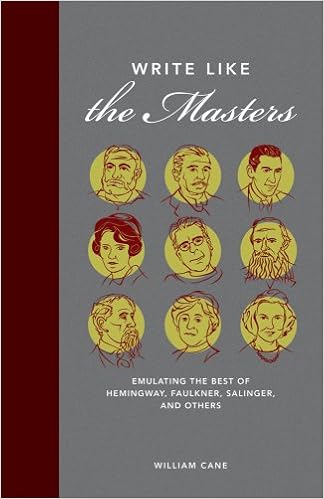 |
| Image from amazon.com |
I saw this book on K. M. Weiland's site and thought it looked interesting. If you go by the cover, it looks kind of dry, but the definition of 'masters' is fortunately not only limited to the literary greats, but also includes genre writers like Stephen King and Ray Bradbury.
As a writer, you don't actually want to copy someone else's style of course, but the idea presented by Cane is that much can be learned by imitation; that's how most of the big names of the 19th and 20th century got started, after all. The book is very readable, the chapters short, and I liked the bits of personal history in the text offering clues as to where these writers found their inspiration. I agree with Cane that understanding where a writer came from and what life experiences he or she is drawing from can lead to a deeper understanding of their work.
Many of the writers discussed were already familiar to me, which was a plus as it helped me get the most out of the insights Cane offered about their writing process, but there were a few I had never heard of, like Knut Hamsun and W. Somerset Maugham. Based on Cane's analysis, I'm curious enough to try a book from each.
Write like the Masters doesn't contain any writing exercises, which might have been a nice addition to the book, but I felt I got my money's worth. Cane points out the value of reading even those books that you don't like, because you can still learn from them. Apparently Edith Wharton thought James Joyce's work was self-centered, narcissistic, and sensationalist (yeah, I hear you!) but still learned to employ the use of epiphanies in her writing from him. So disregard what doesn't work for you and pick and choose what does. I guess I should continue trudging through that list of classics. Sigh.
If you're curious as to the complete list of writers included, you can examine the table of contents of the Kindle version on Amazon.
Sounds interesting! Looks like my Kindle needs one more book about writing...
ReplyDelete